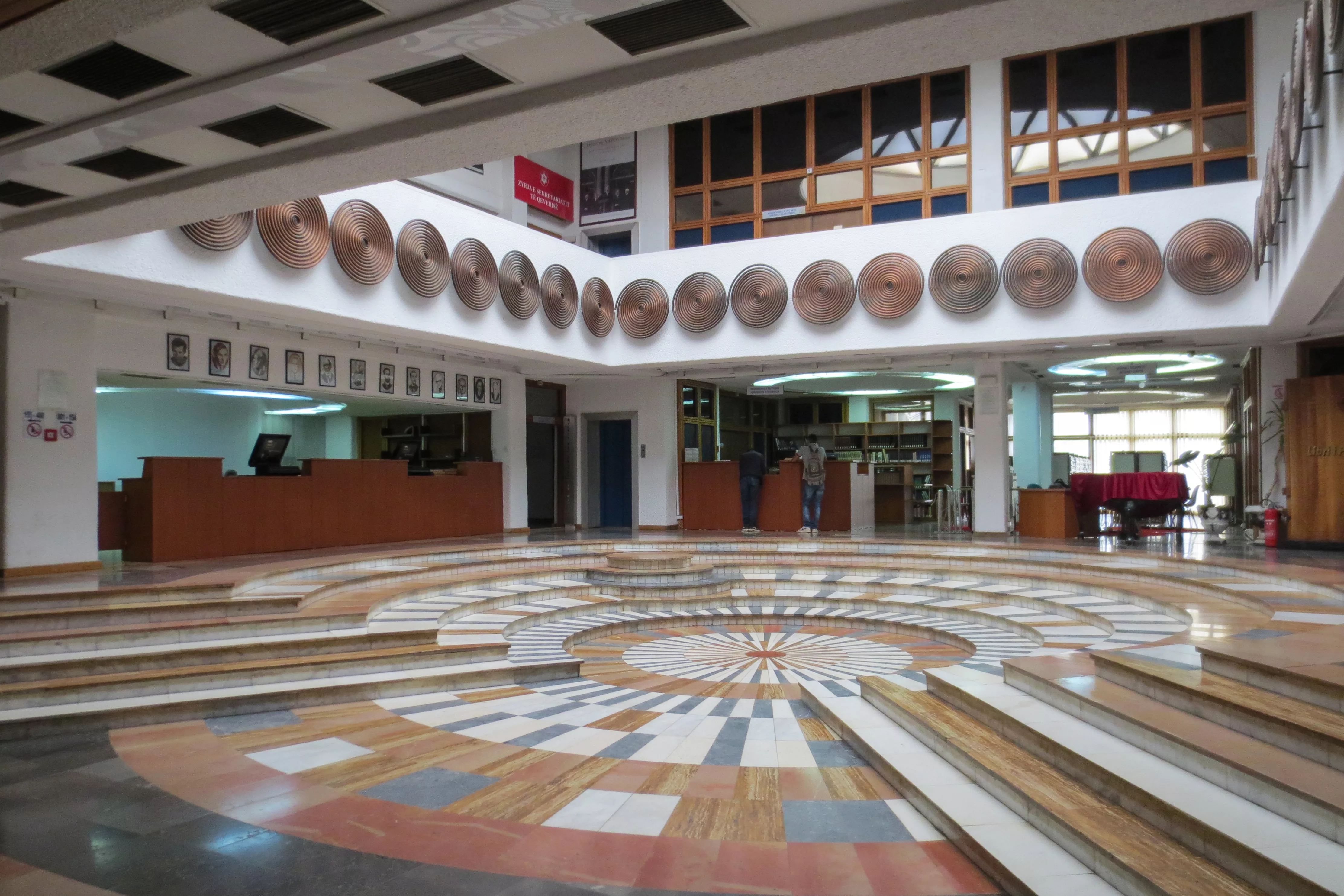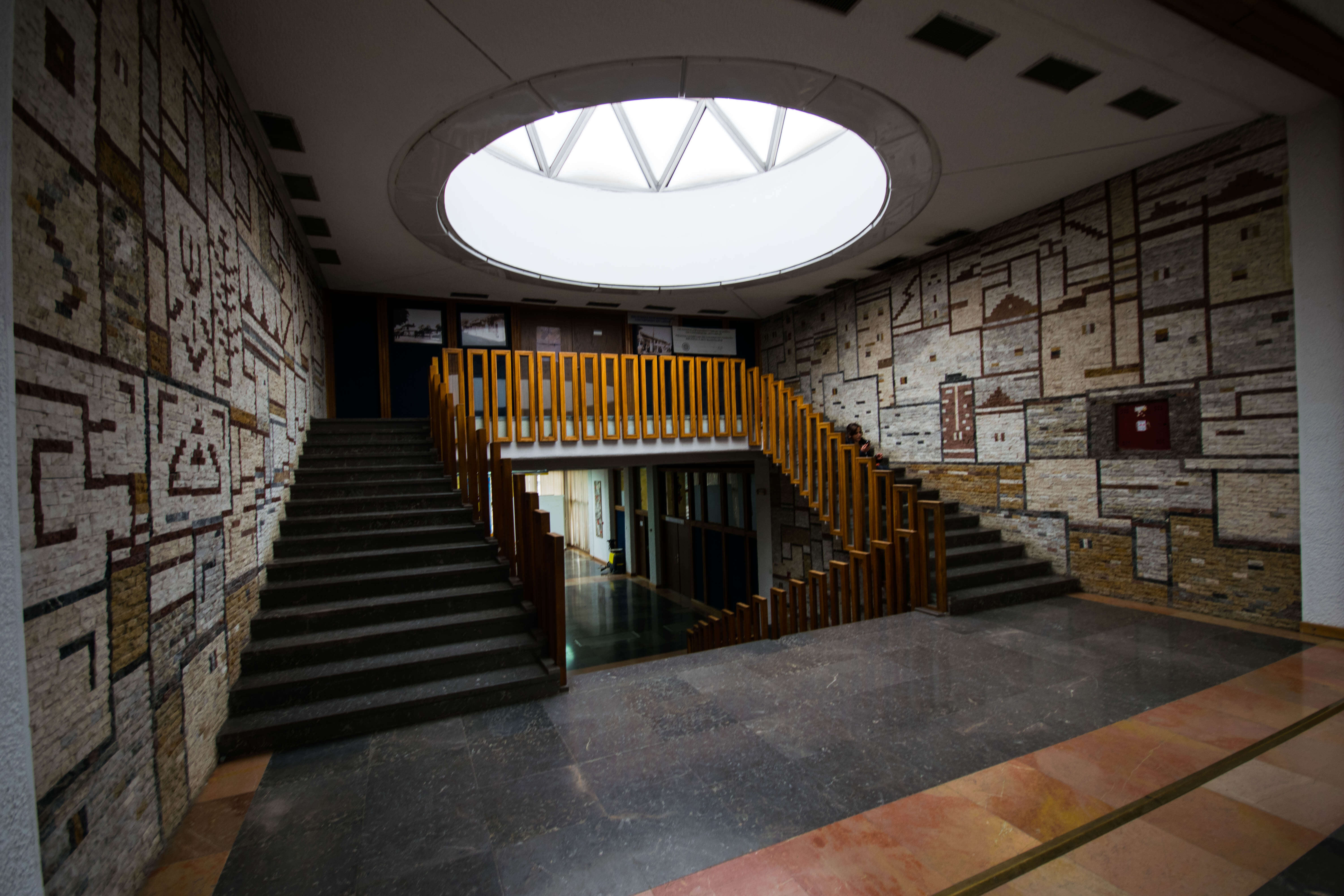The National Library of Kosovo “Pjetër Bogdani” is a cultural institution that holds a special place in the hearts of the citizens of Kosovo. Established in 1944, the library has played a decisive role in preserving the country’s cultural heritage and providing access to knowledge and information for the public.In 1982 the library was moved to the current building which was built in Pristina, the current capital of Kosovo.
Named after Pjetër Bogdani, a distinguished Albanian writer and priest of the 17th century, the library is not just a repository of books and documents, but also a symbol of national identity and pride. Its mission is the collection, preservation, and promotion of Kosovo’s rich literary and intellectual heritage, as well as the encouragement of a culture of reading and learning among its citizens.
Located in a modern and striking architectural building in the heart of Pristina, the capital of Kosovo, the National Library of Kosovo “Pjetër Bogdani” stands out with its unique style that quickly catches the eye through its blend of history, culture, and innovation. The combination of stone, wood, iron, and glass creates a symbol in the midst of Pristina.
The architect of this work is Andrija Mutnjakoviq, a prominent figure in this field who has many highly valued objects with prestigious awards. When asked why this design with Ottoman-style dome cupolas, he answers: The style is an authentic representation of early Albanian land, and not only the cupolas but also its interior style has indigenous elements.
Focusing on the reconstruction according to Mr. Zyberaj emphasizes: “The National Library of Kosovo needs a lot. To sum it up in two or three sentences, I have to tell you that it needs, first of all, capital investments that would enable a technical revitalization of the entire facility The library should be insulated from the outside and the special technical systems such as ventilation and water supply should be renewed right in History and in Quality”
And focusing on the glass used in this magnificent building, we would notice a simple glass but the best of that time in the early 80s. This blend is based on the highest quality and maximum comfort of the glass, with a focus on the ease of readers and visitors to this Great Library. However, it should be noted that this building, for over four decades, now requires reconstruction.
Current reconstruction and innovation in technology, quality, and even the quality of materials used such as wood, stone, metal, and glass would bring a unique experiential experience.
If laminated, tempered, curved, and printed glass were to be used in this building, along with glass technology like Pro green, Smart glass or CO2 reduction, it would bring an even more unique and nature-oriented style that would rank this building among the most beautiful and efficient in the world. Because the National Library of Kosovo is not just a place for preserving books and resources, but also a cultural and architectural masterpiece. The building’s design reflects the rich history and heritage of Kosovo while also embracing modern trends and innovations. The use of different materials and careful attention to detail in constructing the library make it a standout landmark in Pristina.
Visitors to the National Library of Kosovo can not only enjoy a large collection of books and resources but also immerse themselves in the beauty of the building itself. The combination of traditional and modern elements in architecture creates a unique and inspiring atmosphere for all who visit.
The library’s collection includes a wide range of materials, including books, periodicals, manuscripts, and rare documents covering a variety of themes and languages.
One of the main functions of the library is to provide access to information and resources for researchers, scholars, students, and the general public.
The library offers a variety of services, including borrowing services, reference services, and digital resources, to support research and educational activities.
In addition to its role as a repository of knowledge, the National Library of Kosovo “Pjetër Bogdani” also serves as a cultural and educational center for the community.
The library organizes a series of events, including book readings, lectures, exhibitions, and seminars, to promote writing, reading, creativity, and lifelong learning.
The library is also actively engaged in digitalization efforts to preserve and make its valuable collections accessible to a wider audience. Through digitalization projects, the library is able to preserve fragile materials, improve access to rare and unique documents, and contribute to the preservation of Kosovo’s cultural heritage.
In conclusion, the National Library of Kosovo “Pjetër Bogdani” plays a vital role in preserving Kosovo’s cultural heritage, promoting writing and reading, education, and fostering a culture of intellectual inquiry and curiosity. As a beacon of knowledge and learning, the library continues to inspire and enrich the lives of the people of Kosovo and contribute to the cultural and intellectual development of the country.
Source: GlassBalkan










